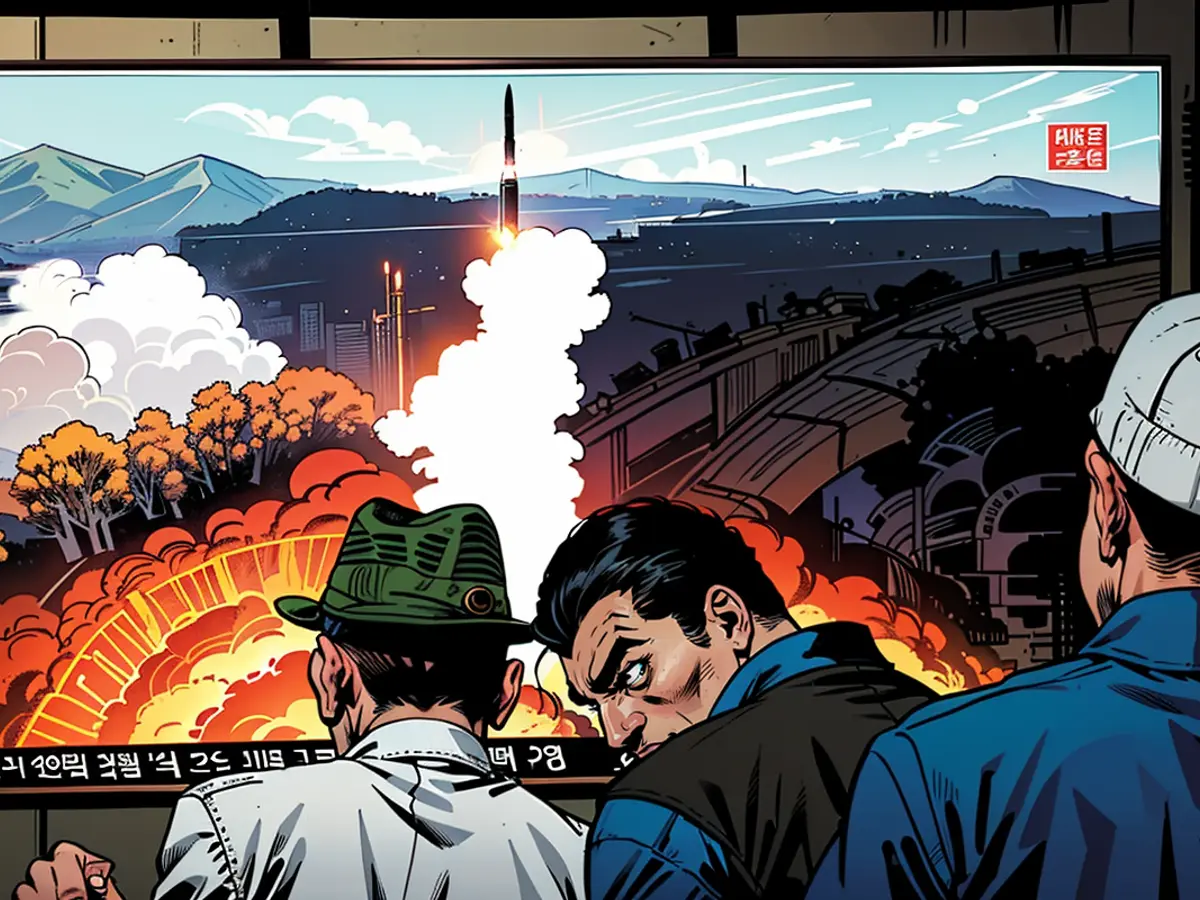North Korea tests missile for 4.5-ton super warhead
A rocket capable of carrying a "superlarge warhead" is intended to become North Korea's atomic weapon. According to Pyongyang, a successful test has been conducted. However, South Korea harbors serious doubts about the test's success.
During a repeated rocket test, North Korea fired ballistic missiles capable of carrying a very large warhead. The test of the Hwasongpho-11Da-4.5 missile, which can carry a 4.5-tonne Superwarhead, reportedly focused on "flight stability and accuracy at a maximum range of 500 kilometers and a minimum range of 90 kilometers." According to the official North Korean news agency KCNA, the test was successful.
The South Korean military cast doubt on this. It is likely that this was a "lie" from the North, the General Staff stated. The test apparently failed in the early stages of flight. The flight path suggested an explosion in the air, and possible debris may have fallen on North Korea.
According to KCNA, the missile is scheduled to be tested again in July to "test the flight characteristics, accuracy, and explosive power of the superlarge warhead at a medium range of 250 kilometers." Experts believe that the missile can be armed with atomic warheads. "Given that it can carry an atomic warhead, it can be considered an atomic weapon," Hong Min of the Korea Institute for National Unification in Seoul told the news agency AFP.
The rocket tests took place after North Korea's leader Kim Jong Un criticized trilateral military exercises between South Korea, Japan, and the United States as the "Asian version of NATO" and threatened "fatal consequences." Relations between Pyongyang and Seoul are at a low point, and the North continues to conduct weapons tests. South Korea is also concerned about deepening relations between the internationally isolated North Korea and Russia.
Despite KCNA's claims of success, South Korea's intelligence agencies argue that the recent Hwasongpho-11Da-4.5 missile test by North Korea likely experienced an early-stage failure. Furthermore, the political tension between North Korea and South Korea remains high, with North Korea continuing to conduct nuclear weapons-related missile tests, potentially posing a significant risk to regional stability.








